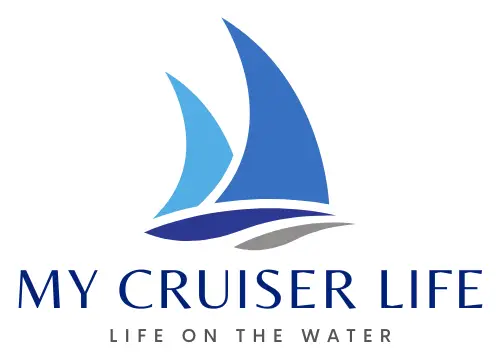Experiencing a fire on your boat, especially if the motor catches fire, can be a terrifying and dangerous situation. Ensuring the safety of all aboard and minimizing damage to your vessel requires quick thinking and immediate action. This Boat Fire Safety Guide is designed to equip you with the essential knowledge and steps to take if you find yourself in this precarious scenario. Understanding these procedures is crucial for every boater, from novices to seasoned sailors, as it can significantly impact the outcome of such emergencies. Let’s delve into the vital steps and precautions that can help protect you, your passengers, and your boat in the event of a motor fire.
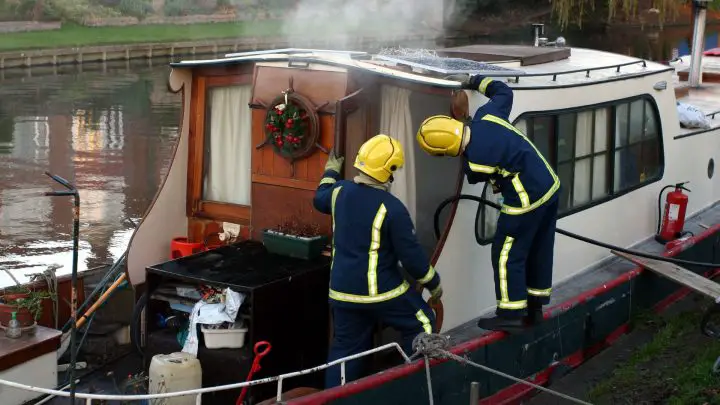
Table of Contents
- What Should You Do if a Fire Breaks Out in the Back of Your Boat?
- What Should You Do in Case of Cabin Boat Fires?
- Boat Fires – A Real Danger
- What Causes Boat Fires?
- Types of Boat Fires
- What You Can Do to Prevent Boat Fires
- Fire Safety Tips for Boats
- First Aid Tips
- FAQs – Boat Fire Safety
What Should You Do if a Fire Breaks Out in the Back of Your Boat?
All boats are different, so narrowing down what to do in each specific instance is impossible. It’s up to the skipper to know their vessel and brief everyone on board on the fire contingency plan.
Fires at the back of the boat invariably mean you need to think about boat motor fires but remember there are a lot of systems in the rear of boats.
What Should You Do if the Motor on Your Boat Catches Fire?
What should you do immediately if a boat motor catches fire? The answer depends a lot on the setup of your boat, like the motor location and what sort of fuel system your engine uses.
For example, gasoline-powered vessels run a much higher risk of gas vapors explosion than diesel vessels. Therefore, boats with internal gas engines need to be extra cautious and utilize their bilge blowers to evacuate all vapors. These vessels should also be equipped with a gas vapor detector and carbon monoxide detectors.
In the case of a motor fire, the boat should be pointed into the wind so that flames and fumes are blown away from the rest of the boat. Cut off all fuel sources and shut down the engine. If the fire is localized, use an appropriately rated fire extinguisher; otherwise, start evacuating.
If you’re wondering what should you do if a fire breaks out in the front of your boat, keep reading to find out.
What Should You Do in Case of Cabin Boat Fires?
Every boat is different, so it’s hard to generalize precisely what to do and how. As with all fires, the most critical priority is to ensure the safety of everyone on board. If the fire is growing rapidly, the most important thing is to get off the boat quickly.
What Should You Do if a Fire Breaks Out in the Front of Your Boat?
Most boats don’t have many fuel sources in the bow since machinery spaces are usually in the rear or midships. Also, fires located forward usually don’t block your regular cabin exits, making it easier to get out quickly.
Fighting the fire, like what should you do if a fire breaks out in the back of your boat, requires figuring out the fuel source and stopping it in its tracks. Electrical shorts can be solved by switching all circuit breakers off, including main shore power breakers and battery switches. If you use propane in your galley, use the solenoid switch to kill the flow of propane from the gas cylinders to the stove.
Boat Fires – A Real Danger
Fire is without a doubt the scariest emergency any boater can face. There are few more dangerous places than in a fire on a boat. Boats are full of flammable substances, and they’re made of highly flammable wood and fiberglass. Make no mistake – boats do not survive long when a fire is involved.
There are many reasons that liveaboard boaters need to think about boat fires. Not only do they spend most of their time on the boat, but they also are more likely than other boaters to experience problems with the systems.
The best statistics about the prevalence of boat fires come from the marine insurance industry. Thankfully, BoatUS Marine Insurance regularly shares its stats. It’s just one of the excellent services that BoatUS provides the industry.
What Causes Boat Fires?
According to them, boat fires are the fifth most common cause of total losses. Here’s a closer breakdown of the numbers between 2015 and 2019.
- 16 percent of fires start outside of the boat—like from the dock or a neighboring docked boat
- Electrical fires account for a whopping 39 percent of fires (31% DC electrical, 8% AC electrical)
- Engine fires make up 15 percent
- Fuel fires total 12 percent
- The remaining 18 percent account for “other” and “unknown”
If you remove the fires that begin off the boat, the percentage of an incident of electrical fire goes up to 46 percent! Obviously, electrical fires, engine fires, and fuel system sources are the biggest causes of trouble that boaters need to know. There are many other combustible substances on a boat, but these are the ones that everyone has that cause the most issues.
Electrical Fires
BoatUS provides a few more interesting stats. For example, of the DC electrical fires, about 57 percent come from faulty engine wiring harnesses. The other major contributor is the battery, at about 27 percent.
So right away, we can tell that keeping our engine and battery system kept tidy and regularly maintained can go a long way in preventing fires.
BoatUS mentions that the most common cause of battery-related fires is operator error. If the batteries are switched incorrectly or wired incorrectly, fires can result. So whenever you take the cables off of your batteries for service, always photograph them before you remove them, so you know how they all go back together.
Boat Motor
Engine compartment fires are less common but no less concerning. Many fires result from a blocked cooling water intake. This allows the exhaust gasses to exceed their safe limits, causing a fire from the exhaust pipe or water muffler. You can significantly reduce the risk of these fires by regularly inspecting or replacing your raw water impeller, keeping the seawater strainer clean, and ensuring that the seacock isn’t blocked.leaking fuel motorboat catches fire is
All of this illustrates how critical regular inspections and routine maintenance are to boat safely. Things like leaking fuel or chaffed electrical wires don’t pop up all of the sudden.
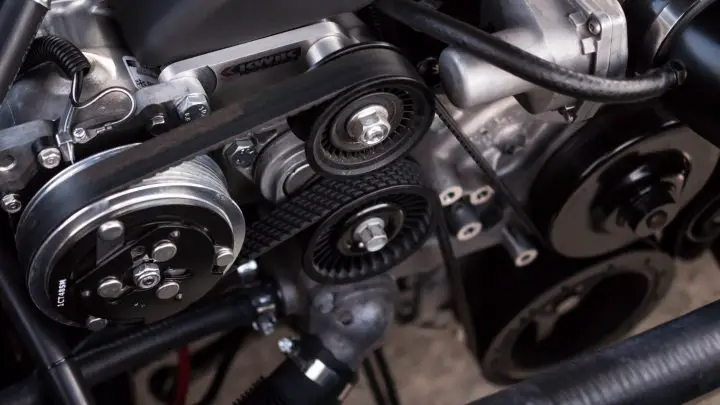
Off-Boat Sources of Fire
Boats docking in marinas need to be especially careful of sources from neighboring boats. In liveaboard marinas, this is doubly true.
The number one cause of fires in this situation is shore power cord connections. Shore power cords and their plugs are not well-designed for the marine environment. They corrode easily and can wiggle loose easily.
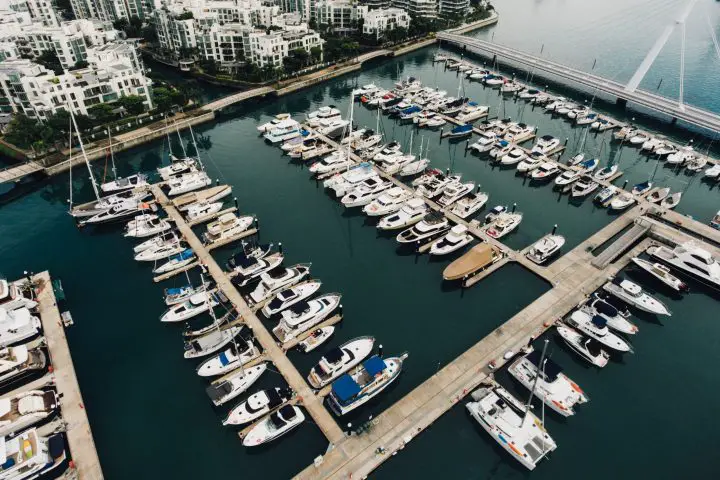
What’s more, our boats are consuming more and more power over antiquated shore power connections. Many boaters push their shore power connections to the limits with galley appliances, air conditioners, and other big electrical consumers.
There are some modern connections on the market, like the SmartPlug adapter and shore power cords. But in truth, problems often start at the marina’s pedestal.
- Side clips lock the plug body securely into the inlet which eliminates any stress on the electrical connection from the movement of the power cord
- Multi-fin silicone gaskets installed in the plug body eliminate any water penetration when a plug is connected to inlet
- Blue LED Power Indicator Light
- 30 Amp connector
- 15 Amp STD wall plug connector
Prices pulled from the Amazon Product Advertising API on:
Product prices and availability are accurate as of the date/time indicated and are subject to change. Any price and availability information displayed on [relevant Amazon Site(s), as applicable] at the time of purchase will apply to the purchase of this product.
Types of Boat Fires
Understanding the dynamics and dangers of fires onboard begins with understanding the ABCs of boat fires. Each letter is a category of combustible substance on board a boat that could catch fire.
- Class A substances burn solid fuels that burn. Think wood, paper, fiberglass, plastic, and fabric.
- Class B fires are those that a fueled by combustible liquids or gases. On a boat, this might be gasoline or diesel from the fuel tank, propane for the galley, kerosene for the heater or stove, or methane escaping the holding tank.
- Electrical fires make up Class C fires. They result from sparks or short circuits caused by arcing electrical connections, chaffed wiring, or faulty equipment.
It’s vital to understand the different types of fires to know how to prevent them and how to fight them. For example, you can put a Class A fire can be put out with water. But a Class B fire, fueled by grease on the galley stove, could be made worse using water. In the case of a Class C electrical fire, using water might get you electrocuted!
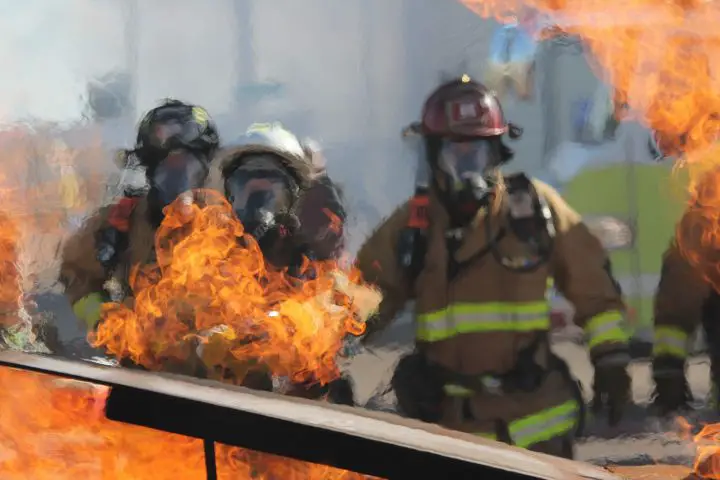
What You Can Do to Prevent Boat Fires
Fire Extinguisher Classes
Of course, every boat should have fire extinguishers on board. But fire extinguishers are not all created equally. Many inexpensive small fire extinguishers, even those sold at marine stores, are not rated for all three classes of fire.
The best ones are rated for all three. The American Yachting and Boating Council recommends tri-class rated (ABC) fire extinguishers for all boats under 65 feet long. Having one extinguisher that can do it all saves time in an emergency. It also means that you can use one extinguisher to fight a fire that has spread to multiple sources.
When buying fire extinguishers for your boat, remember the following.
- All extinguishers should be US Coast Guard approved.
- Boats under 26 feet long must carry at least one two-pound portable extinguisher. No portable extinguishers are required if a boat has a permanently mounted extinguisher system in the machinery space.
- Boats ranging from 26 to 40 feet long should have two two-pound portable extinguishers or one 2.5-pound extinguisher. If a boat has a mounted system, one less portable extinguisher is required.
- Boats over 40 feet but under 65 feet need three two-pound portables or at least one two-pound and one 2.5-pound extinguisher on board. If there’s a mounted system, one less two-pound unit is required.
Have a Plan
First off, there are limits to what you can do onboard a boat. You should always start with an evacuation plan, and if things get out of hand, you need to get off the boat.
You should only ever grab fire extinguishers and attempt to fight a fire yourself only if the following conditions are met.
- If the fire is small and relatively contained
- If you have a way off the boat and can get out the exit if things don’t go well
- If you have an extinguisher that’s rated for the correct class of fire (note, if you have an ABC-rated extinguisher, you’re good to go)
- You know how to use the extinguisher
- If you doubt that you can contain a fire that is rapidly growing, use your time to escape rather than fight it
- Be aware that fiberglass creates toxic fumes when burning. If fiberglass is burning, get away immediately.
Consider Going to Firefighting School
Professional mariners are required to attend fire fighting school. During this simple training, you’ll get practice putting out actual fires with fire extinguishers. Nothing beats real-world practice—in a safe and controlled environment, that is.
Boat Safely as a Liveaboard
A note for liveaboard boaters–remember that these statistics are collected from a wide range of boats. Many boating accidents happen by fire breaking on outboard motor runabouts, personal watercraft, or pontoon boats. Therefore, if you stay on your boat overnight, extra emphasis needs to be placed on your safety mechanism and fire contingency plan.
What sort of fire detection systems do you have should boat fires happen? Every boat should have fire alarms or smoke detectors in every sleeping compartment, and while you’re at it, carbon monoxide detectors save lives too. A safety drill isn’t a bad idea since it will help everyone onboard think through the possibilities.
- 2 units in 1: unit alerts you to smoke & carbon monoxide by sounding a loud, 85-decibel alarm & sounding voice alerts
- Ionization sensor technology senses invisible fire particles, while a electrochemical sensor detects CO gas
- Voice Alarm & an 85-decibel alarm announces a hazard when detected: “Fire!” = smoke or fire or “Warning Carbon Monoxide” = CO gas, or Replace Battery when the battery needs to be replaced
- Operates on 2-AA alkaline batteries, providing reliable detection during a power failure
- Front-load battery door makes installation & replacement easy
- Tamper-resistant design: deters removal of the carbon monoxide smoke detector combo from the ceiling
- Test-Hush Button makes testing the detector or silencing false alarms easy (false alarms may occur from routine cooking, shower steam, dust or humidity)
- UL listed with a 10-Year limited manufacturer warranty on the alarm only (not a battery performance claim). Warranty begins when the alarm is powered on. If that date is unknown, it should be assumed that replacement is needed.
Prices pulled from the Amazon Product Advertising API on:
Product prices and availability are accurate as of the date/time indicated and are subject to change. Any price and availability information displayed on [relevant Amazon Site(s), as applicable] at the time of purchase will apply to the purchase of this product.
Fire Safety Tips for Boats
To recap, here are tips to remember in case of fire on your vessel:
To Prevent Electrical Fires
- Regular Maintenance: Keep engine and battery systems tidy and well-maintained to prevent an electrical fire that comes from faulty wiring or battery issues. (For boat maintenance tips, check out my blog post.)
- Photograph Battery Connections: Before servicing, photograph battery connections to ensure correct reassembly, preventing operator error and potential fires.
To Prevent Engine and Boat Motor Fires
- Inspect Raw Water Impeller: Regularly check and replace to prevent overheating due to blocked cooling water intake.
- Clean Seawater Strainer: Maintain cleanliness to ensure proper water flow and prevent overheating.
- Check Seacock: Ensure it isn’t blocked to avoid exhaust gas overheating and potential fires.
To Prevent Fuel Fires
- Regular Inspections: Check for leaking fuel or chaffed electrical wires as part of routine maintenance.
To Prevent Fires from Off-Boat Sources
- Monitor Shore Power Connections: Check for corrosion and ensure connections are secure to prevent fires from faulty electrical connections.
- Upgrade to Modern Connections: Consider using modern shore power adapters like SmartPlug to reduce overheating risks.
In Case of a Motor Fire
- Point Boat into the Wind: To ensure flames and fumes are blown away from the boat.
- Cut Off Fuel Sources: Immediately shut down the engine and close fuel valves.
- Use Fire Extinguishers: If the fire is localized and manageable, use an appropriately rated fire extinguisher.
General Fire Prevention Tips
- Understand Fire Types: Know the different types of fires (Class A, B, C) and the appropriate extinguishing methods to prevent them effectively.
- Proper Fire Extinguishers: Equip your boat with US Coast Guard-approved, tri-class rated (ABC) fire extinguishers suitable for all types of boat fires.
- Evacuation Plan: Have a clear evacuation plan in case a fire becomes uncontrollable.
- Firefighting Training: Consider professional firefighting training for hands-on experience in extinguishing fires safely.
- Fire Detection Systems: Install fire alarms or smoke detectors in all sleeping compartments, along with carbon monoxide detectors.
Additional Safety Measures
- Conduct Safety Drills: Regularly practice safety drills to prepare everyone on board for emergency situations.
- Stay Informed: Always be aware of the boat’s layout and machinery spaces to quickly identify potential fire sources.
First Aid Tips
- Assess for injuries. Smoke inhalation and burns are common in boat fires.
- For burns, cool the burn under cool running water for at least 10 minutes, cover loosely with a sterile dressing or clean cloth.
- For smoke inhalation, move the person to fresh air immediately. Monitor for difficulty breathing and seek medical attention as soon as possible.
FAQs – Boat Fire Safety
What should you do immediately if a boat motor catches fire?
As with all fires, the skipper’s first obligation is to the safety of their crew and passengers. Turn the boat so that the engine is downwind, fanning any flames and smoke away from the rest of the boat. Shut down the engine immediately and make sure everyone is wearing a personal flotation device (PFD or life jackets).
With fires near the engine, the primary concern is to remove fuel sources from the fire. If your fuel line has a shutoff, shut it off! If the fire is localized and you have an appropriate fire extinguisher, attempt to put the fire out. If the fire is already burning fiberglass and growing rapidly, evacuate immediately.
How do you stop a boat fire?
All fires require two things to burn – fuel and oxygen. To stop any fire, remove one or both of these ingredients. Boats are small spaces, however, and it can make it hard to get access to a fire without endangering yourself. Portable fire extinguishers should be carried onboard all vessels. The best ones are rated for Class A, B, and C fires—so they’re good for anything that might happen on a boat.
